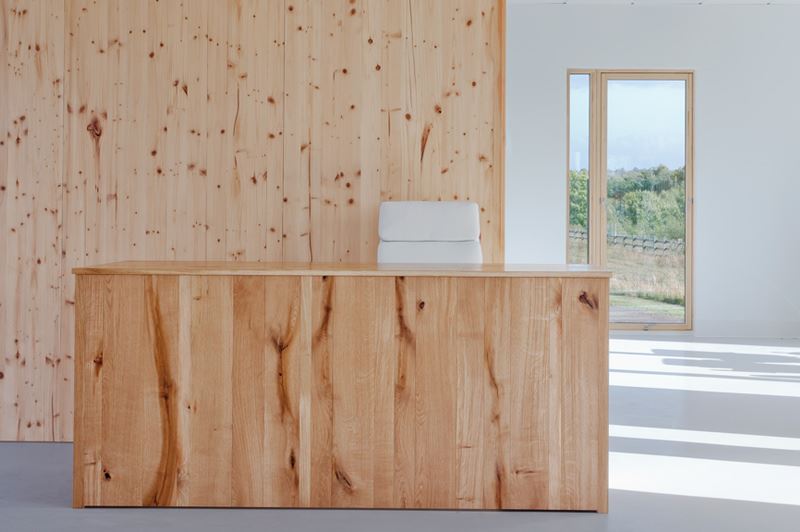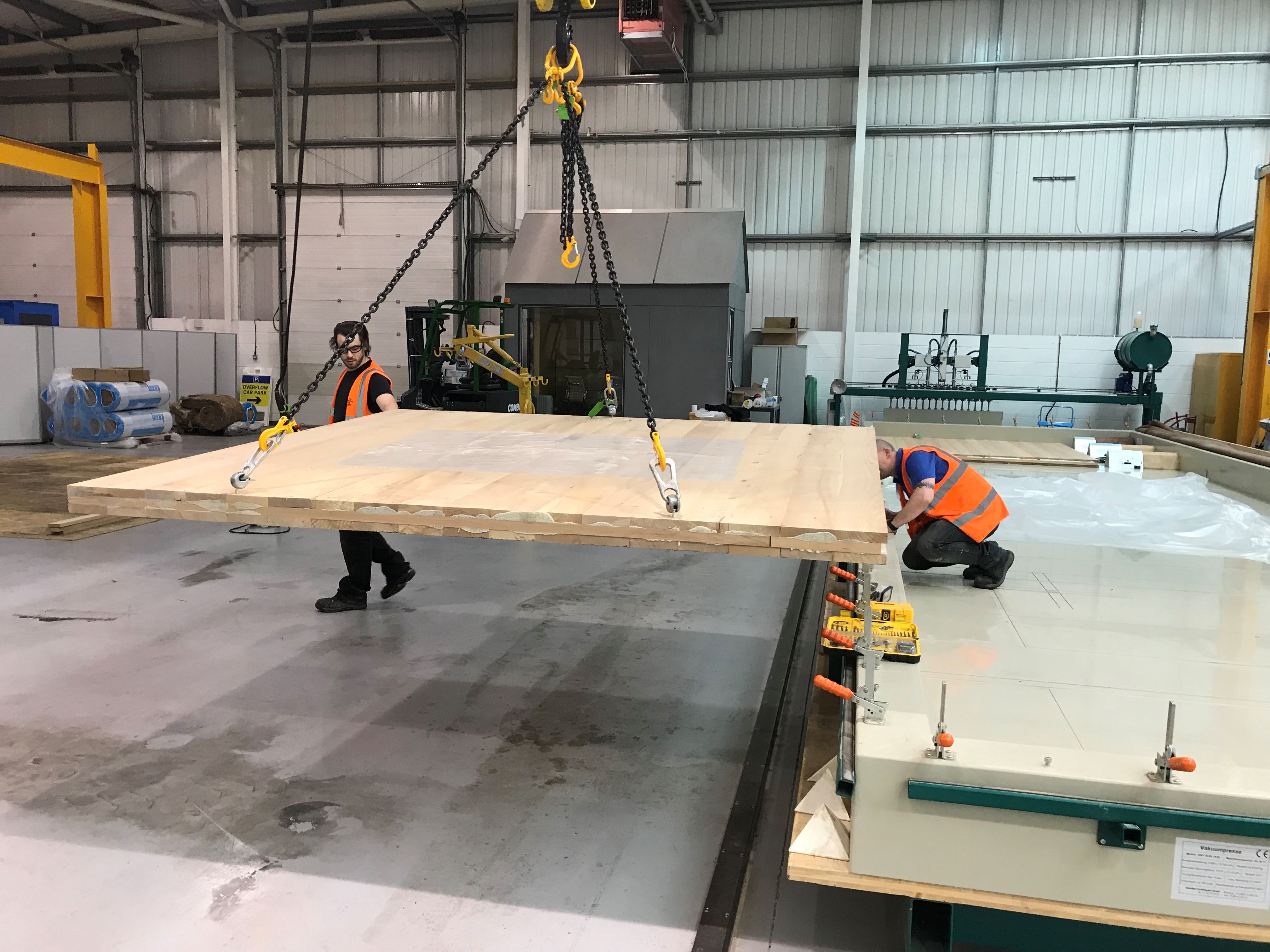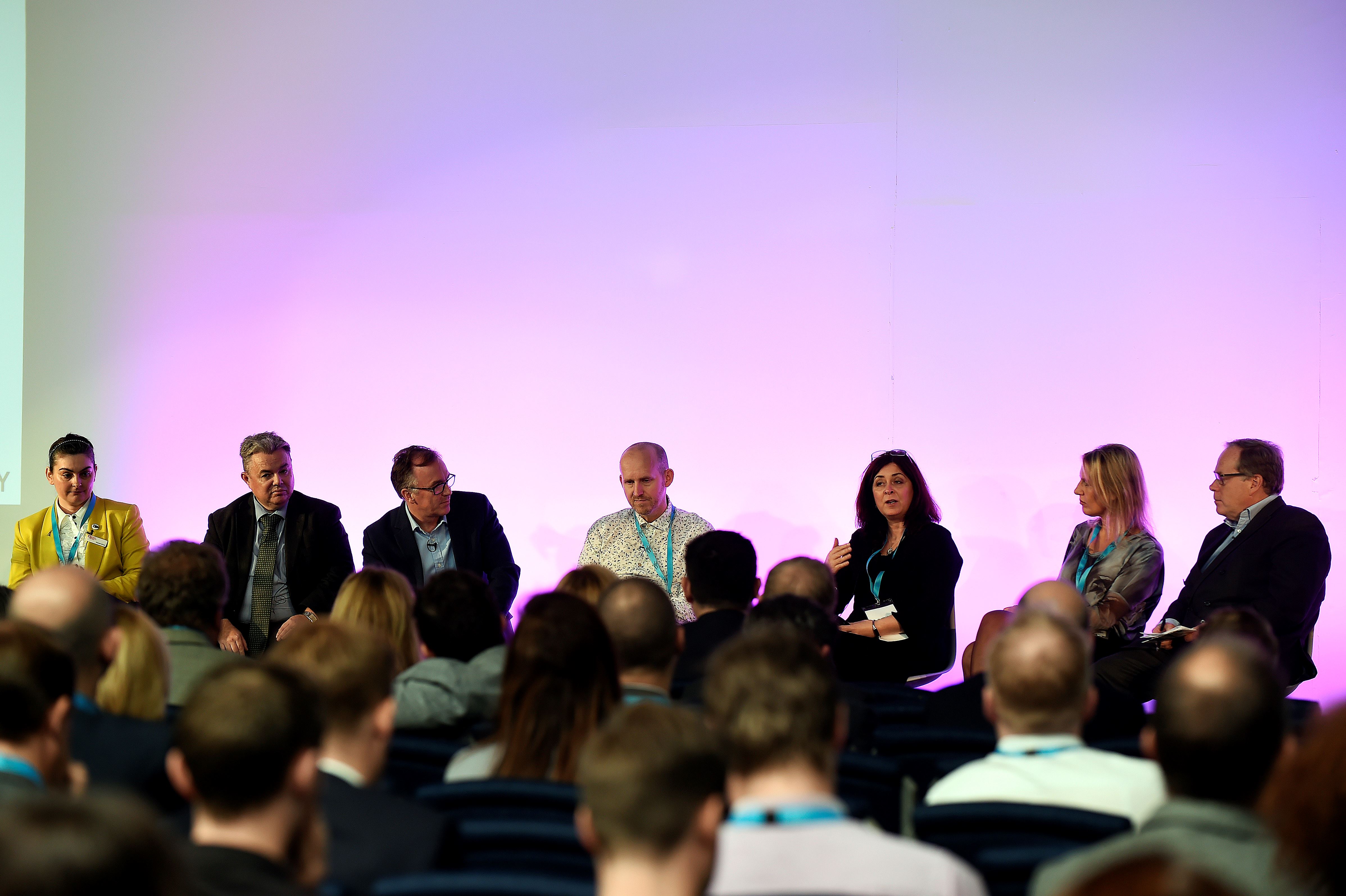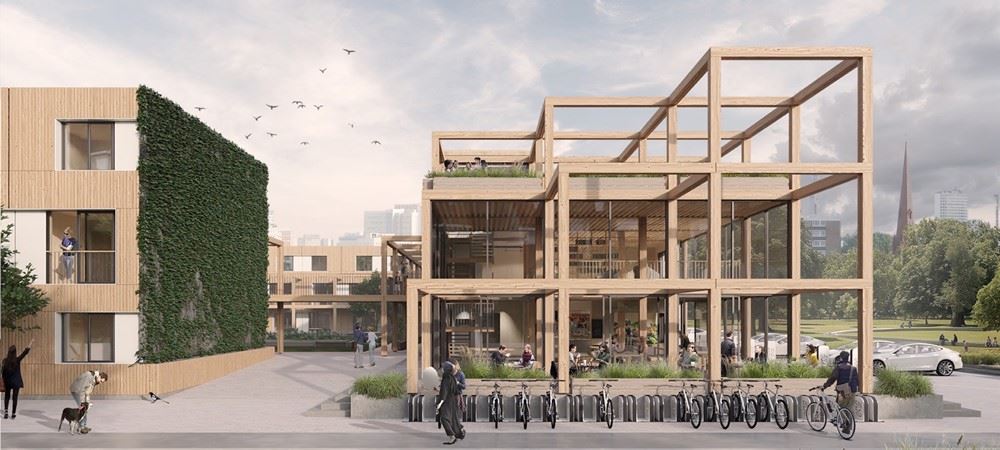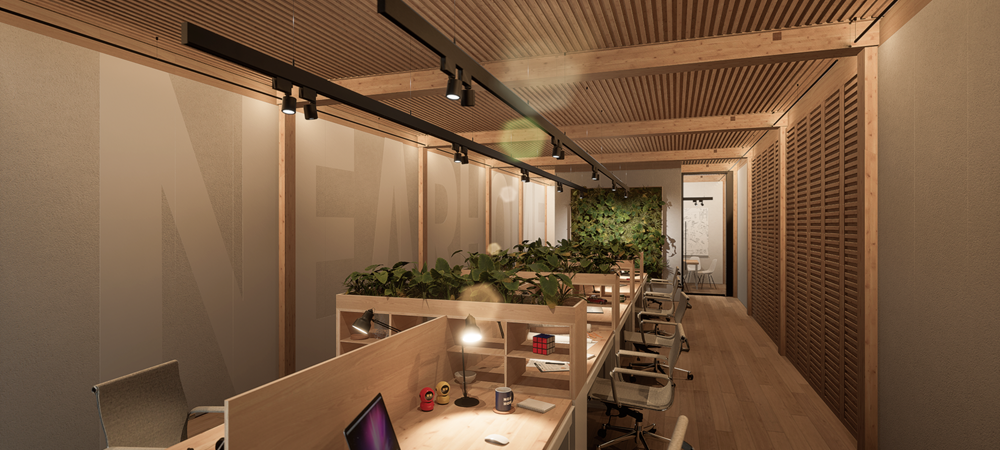Content
New centre launched to decarbonise Scotland's urban buildings
A major initiative to lower carbon emissions generated by Scotland’s most densely populated urban buildings was officially launched last week at a sold-out event hosted at the Edinburgh Futures Institute.
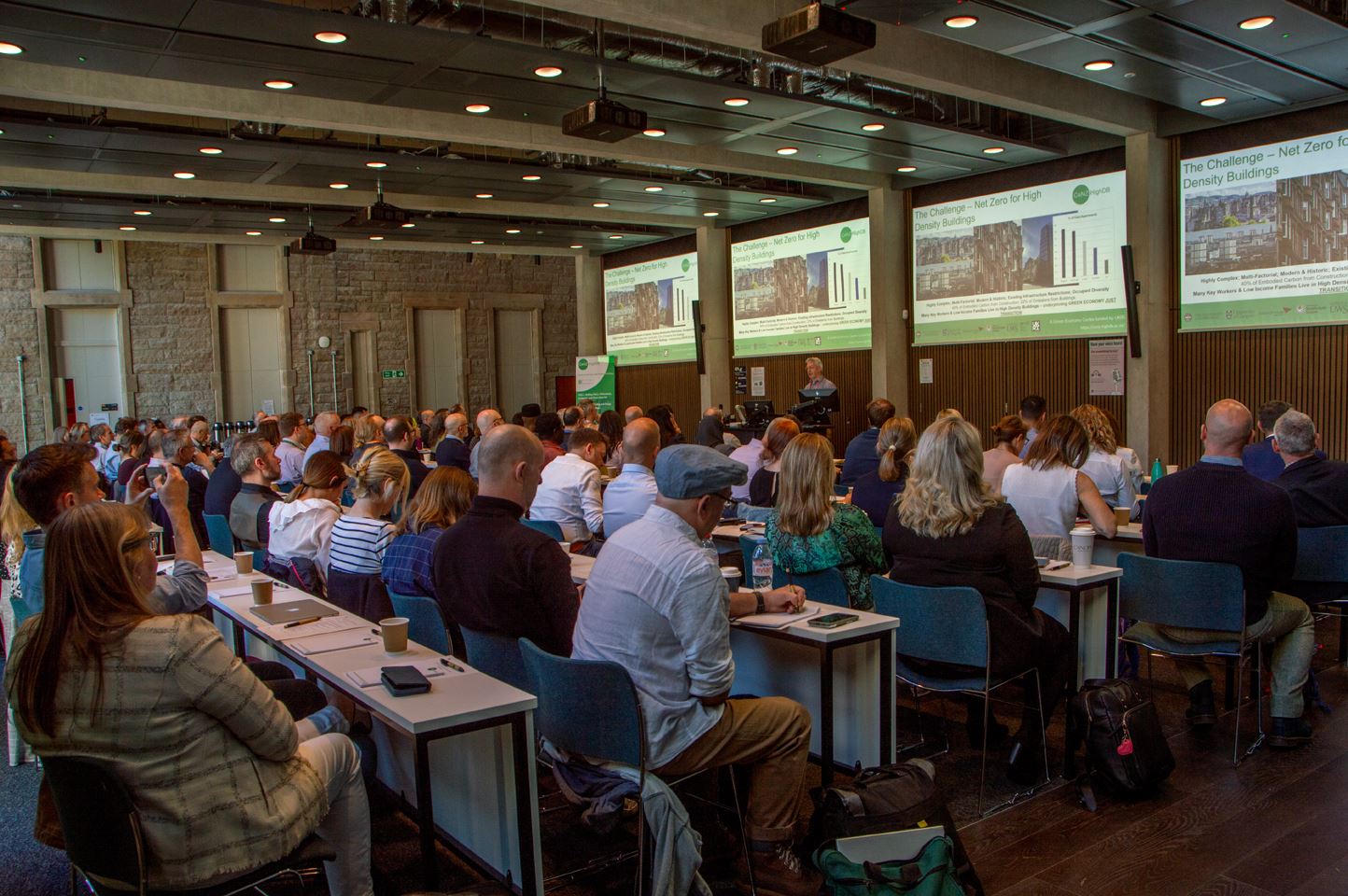
The Centre for Net-Zero High Density Buildings, based at the University of Edinburgh and supported by £4.5 million in funding from UK Research and Innovation (UKRI), aims to transform the way urban buildings, including tenements, flats, and commercial properties, are designed, retrofitted and maintained with the aim of making them more energy-efficient, affordable to heat, and sustainable for future occupants.
Led by the University of Edinburgh, the research partnership combines the Universities of Glasgow, Strathclyde, West of Scotland, Edinburgh Napier University, and BE-ST – Scotland’s construction innovation centre. The centre draws together £5.6 million investment from industry, education, the public sector and the community.
The packed launch event showcased the breadth of the Centre’s ambition through a series of themed presentations and workshops, covering everything from building fabric performance and low-carbon heating systems to occupant needs, community-wide energy planning, and skills training for the green economy.
Sean Smith, Professor at the University of Edinburgh and Centre Lead, says: “Our launch event brought over 130 leading experts from industry, public sector and academia and demonstrated the motivation and range of organisations to deliver solutions for the buildings and housing sector. With so many low-income households and key workers living within flatted housing developments it is imperative that we provide cost effective lower carbon heating and energy efficiency solutions.”
Centre researchers will trial new heating and cooling technologies, retrofit existing buildings with natural and locally sourced insulation materials like hemp and sisal, and explore energy storage solutions for urban buildings. A special focus will be placed on buildings housing lower-income residents and public sector workers, the groups which have been identified as the most vulnerable to high energy costs and poor housing conditions.
The Centre’s work will focus on case study solutions predominantly within the Edinburgh and Glasgow city regions. Both cities have some of the highest proportions of flats in the UK. In addition to informing national policy and industry practice, the Centre will train students and professionals in low-carbon retrofitting techniques, helping to build the workforce needed to meet the UK’s net-zero ambitions.
Demonstrator projects and test buildings will also be sourced from other cities and towns in Scotland during the 4-year programme, given the similar housing and building archetypes, such as tenements, timber frame and 4-in-a-block housing. These three archetypes collectively make-up over 800,000 homes in Scotland.
Rob Morrison, Impact Manager at BE-ST, says: “BE-ST are supporting the Centre for Net-Zero High Density Buildings through industry and stakeholder engagement. Working with the Centre we aim to accelerate retrofit action in Scotland. We will build on our 10 years' experience as an innovation centre connecting partners across academia, industry and government to catalyse new projects.
“The Centre’s mission is closely aligned with Retrofit Scotland which was recently relaunched to provide a public-facing platform for training, convening, fostering a network and sharing best practice. Over the next few years, we’re committed to working together to explore innovative approaches to delivering retrofit in urban communities.”
The Centre is one of several UKRI-funded Green Economy Centres, created to stimulate sustainable jobs, regional innovation, and environmental transformation across the UK. It is part of the Accelerating the Green Economy Centres programme, a £25m UKRI Building a Green Future funded programme to support five co-created centres that accelerate the translation and commercialisation of market-informed solutions to drive the green economy.
Dr Kate Hamer, UKRI Programme Director, Building a Green Future, says: “Transitioning to a sustainable green economy is a win-win for all; it creates new jobs, new partnerships and new industries. Through investment in collaboration between researchers and innovators, we harness our collective effort across the public and private sector, driving innovation to secure the future of our environment and deliver sustainable economic growth.”
To learn more about the Centre and its work, please visit: www.cenz-highdb.ac.uk
